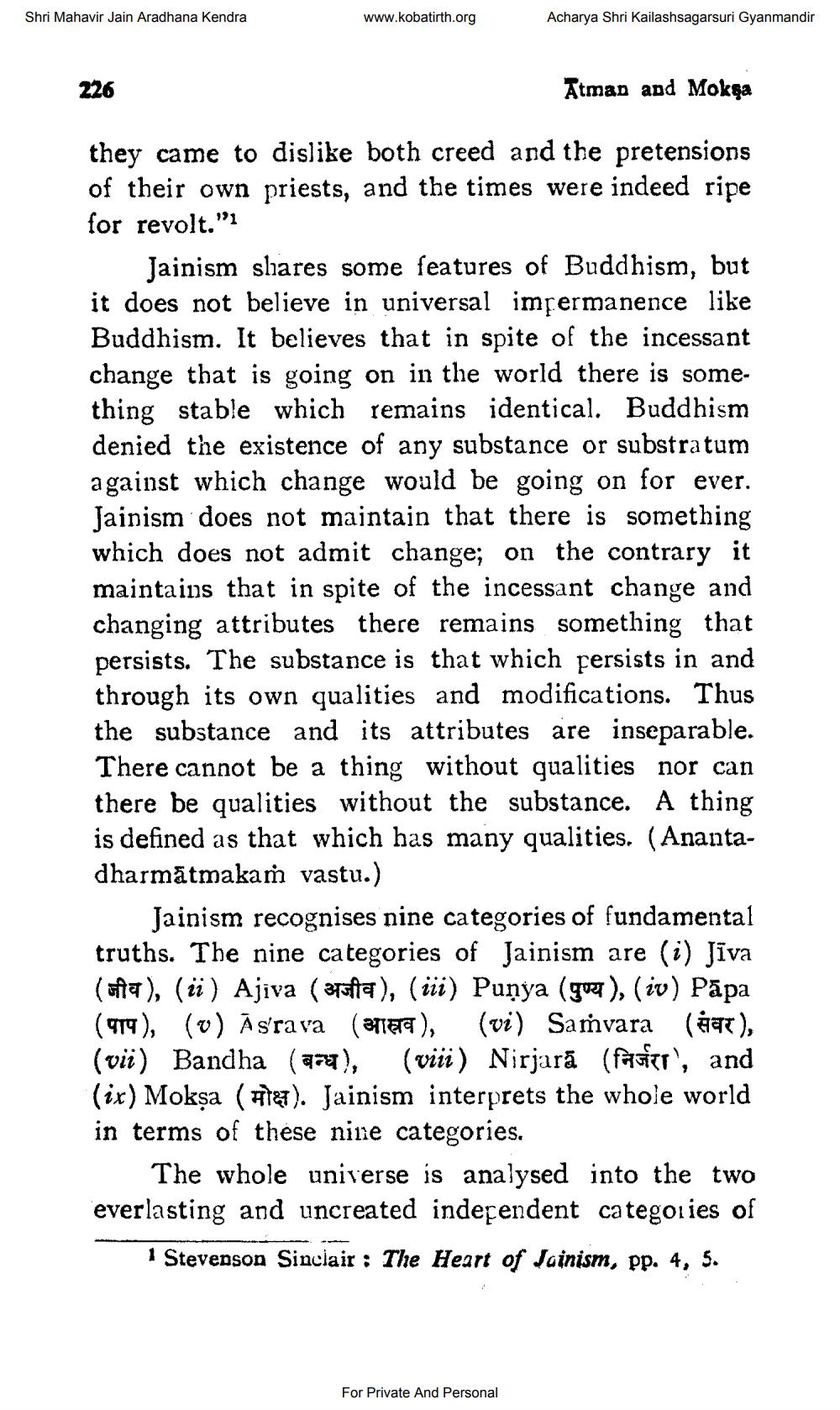________________
Shri Mahavir Jain Aradhana Kendra
www.kobatirth.org
Acharya Shri Kailashsagarsuri Gyanmandir
226
Atman and Mokga
they came to dislike both creed and the pretensions of their own priests, and the times were indeed ripe for revolt."1
Jainism shares some features of Buddhism, but it does not believe in universal impermanence like Buddhism. It believes that in spite of the incessant change that is going on in the world there is something stable which remains identical. Buddhism denied the existence of any substance or substratum against which change would be going on for ever. Jainism does not maintain that there is something which does not admit change; on the contrary it maintains that in spite of the incessant change and changing attributes there remains something that persists. The substance is that which persists in and through its own qualities and modifications. Thus the substance and its attributes are inseparable. There cannot be a thing without qualities nor can there be qualities without the substance. A thing is defined as that which has many qualities. (Anantadharmātmakaṁ vastu.)
Jainism recognises nine categories of fundamental truths. The nine categories of Jainism are (i) Jīva (619), (ii) Ajiva (taita), (iii) Punya (goe), (iv) Pāpa (979), (v) Āsrava (aria), (vi) Saṁvara (at), (vii) Bandha (aqua), (viii) Nirjarā (fasitr', and (ix) Mokșa (He). Jainism interprets the whole world in terms of these nine categories.
The whole universe is analysed into the two everlasting and uncreated independent categories of
1 Stevenson Sinclair : The Heart of Jainism, pp. 4, 5.
For Private And Personal




